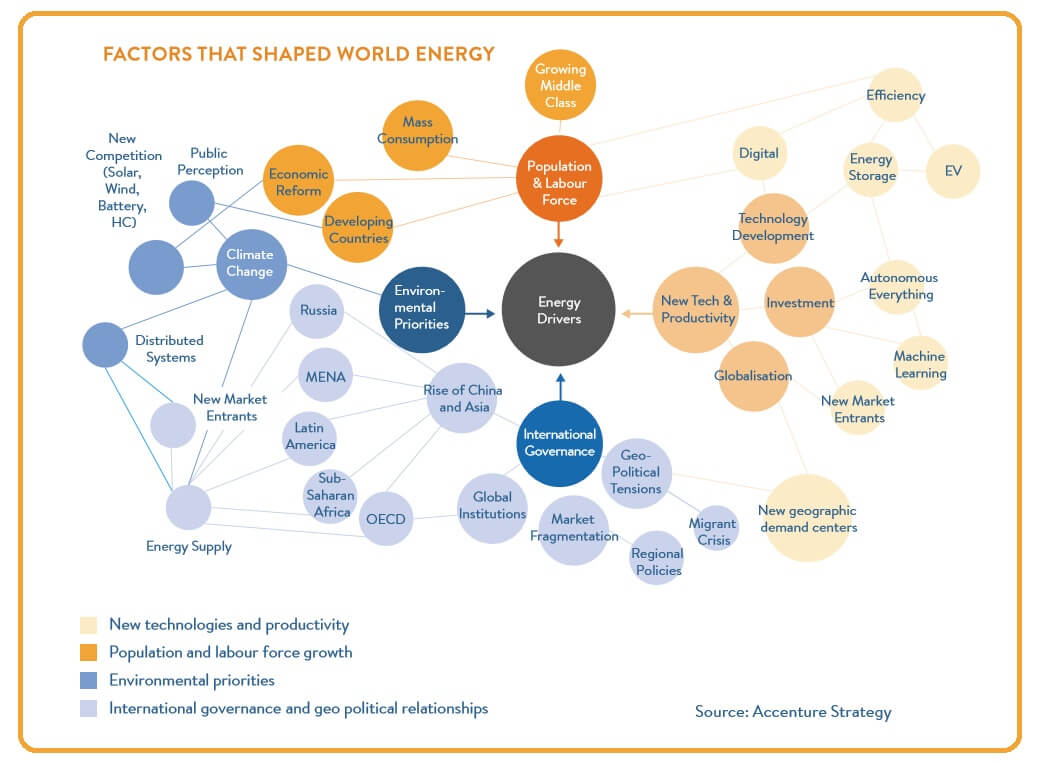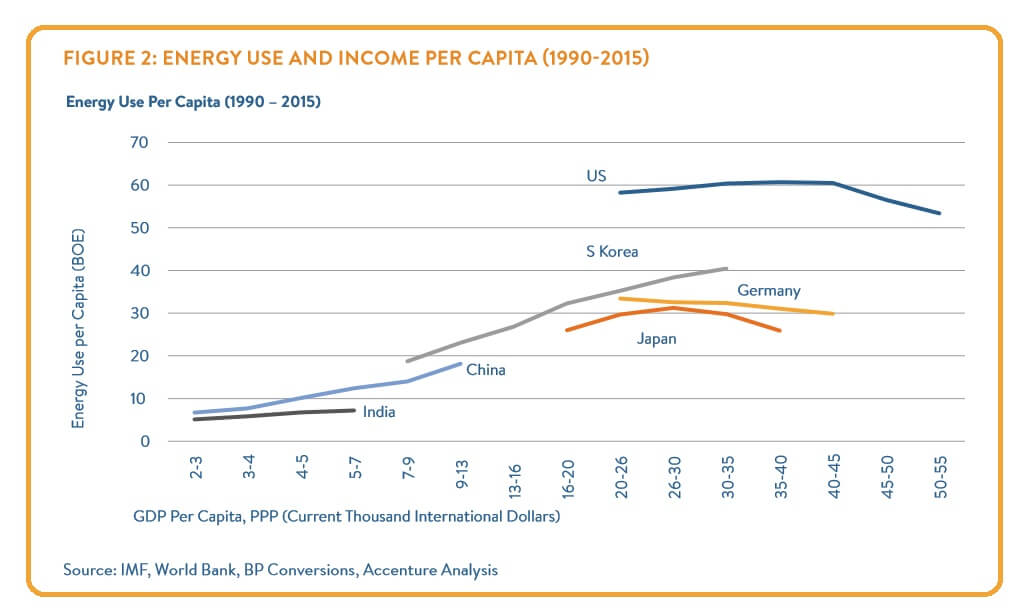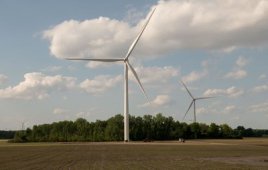New Scenarios identify significant structural shifts creating a new world for the energy sector.
The World Energy Council has identified that per capita energy demand will peak before 2030. This is in stark contrast to historic growth levels, which have seen global demand for energy more than double since 1970. Technological innovation, government policies and lower growth expectations will have a significant impact on the sector in the coming decades.

The findings come in a recent set of exploratory scenarios, developed in collaboration with Accenture Strategy and the Paul Scherrer Institute, which were launched at the 23rd World Energy Congress in Istanbul by the World Energy Council.
The findings come in a recent set of exploratory scenarios, developed in collaboration with Accenture Strategy and the Paul Scherrer Institute, which were launched at the 23rd World Energy Congress in Istanbul by the World Energy Council. The three scenarios entitled “Unfinished Symphony”, “Modern Jazz” and “Hard Rock” present three distinct trajectories for the energy sector to 2060, with very different realities across regions.
Speaking at the report launch Ged Davis, Executive Chair of Scenarios, World Energy Council, said:
“It is clear that we are undergoing a grand transition, which will create a fundamentally new world for the energy industry. Historically people have talked about Peak Oil but now disruptive trends are leading energy experts to consider the implications of Peak Demand. Our research highlights seven key implications for the energy sector which will need to be carefully considered by leaders in boardrooms and staterooms.”

Research highlights seven key implications for the energy sector which will need to be carefully considered by leaders in boardrooms and staterooms.
The report goes on to highlight that there will be a shift in final energy consumption with demand for electricity doubling by 2060. Solar and wind, which currently account for about 4% of power generation, will see the largest increase so that by 2060 they will represent between 20% and 39% of power generation.
Fossil fuel usage could fall to as little as 50% of the primary energy mix in one of the scenarios, with differing futures for coal, oil and natural gas. However, in all three scenarios the carbon budget is also likely to be broken within the next 30 to 40 years. Oil will continue to play a significant role in the transportation sector representing over 60% of the mix in all three scenarios to 2060 and natural gas will continue to increase at a steady rate.
Nuri Demirdoven, Managing Director at Accenture Strategy added:
“By 2060, all scenarios point to an increase in demand for gas, as well as a possible peak demand for oil from 2035 to 2045. Misspending including misallocation of capital has always been a risk for energy assets, and will continue to grow due to fundamental shifts in the industry. Leading companies across all scenarios will be those that adapt quickly and take two urgent steps: rethink the balance of their energy portfolio, and utilize business and digital technologies to transform how they deliver work and organize and manage performance across their businesses.”
Ged Davis concluded: “The underlying drivers will re-shape the economics of energy. We are entering a world where the concern is no longer just about stranded assets but also the impact of stranded resources on nations.”
The World Energy Scenarios, entitled “The Grand Transition” were built by a network of more than 70 experts from over 25 countries and were quantified using a global multi-region energy system model by the Paul Scherrer Institute
The 138-page publication will be available to download using: https://www.worldenergy.org/publications/2016/world-energy-scenarios-2016-the-grand-transition/
The World Energy Council is the principal impartial network of energy leaders and practitioners promoting an affordable, stable and environmentally sensitive energy system for the greatest benefit of all. Formed in 1923, the Council is the UN-accredited global energy body, representing the entire energy spectrum, with over 3,000 member organisations in over 90 countries, drawn from governments, private and state corporations, academia, NGOs and energy stakeholders. We inform global, regional and national energy strategies by hosting high-level events including the World Energy Congress and publishing authoritative studies, and work through our extensive member network to facilitate the world’s energy policy dialogue. For more: www.worldenergy.org
Filed Under: Uncategorized




